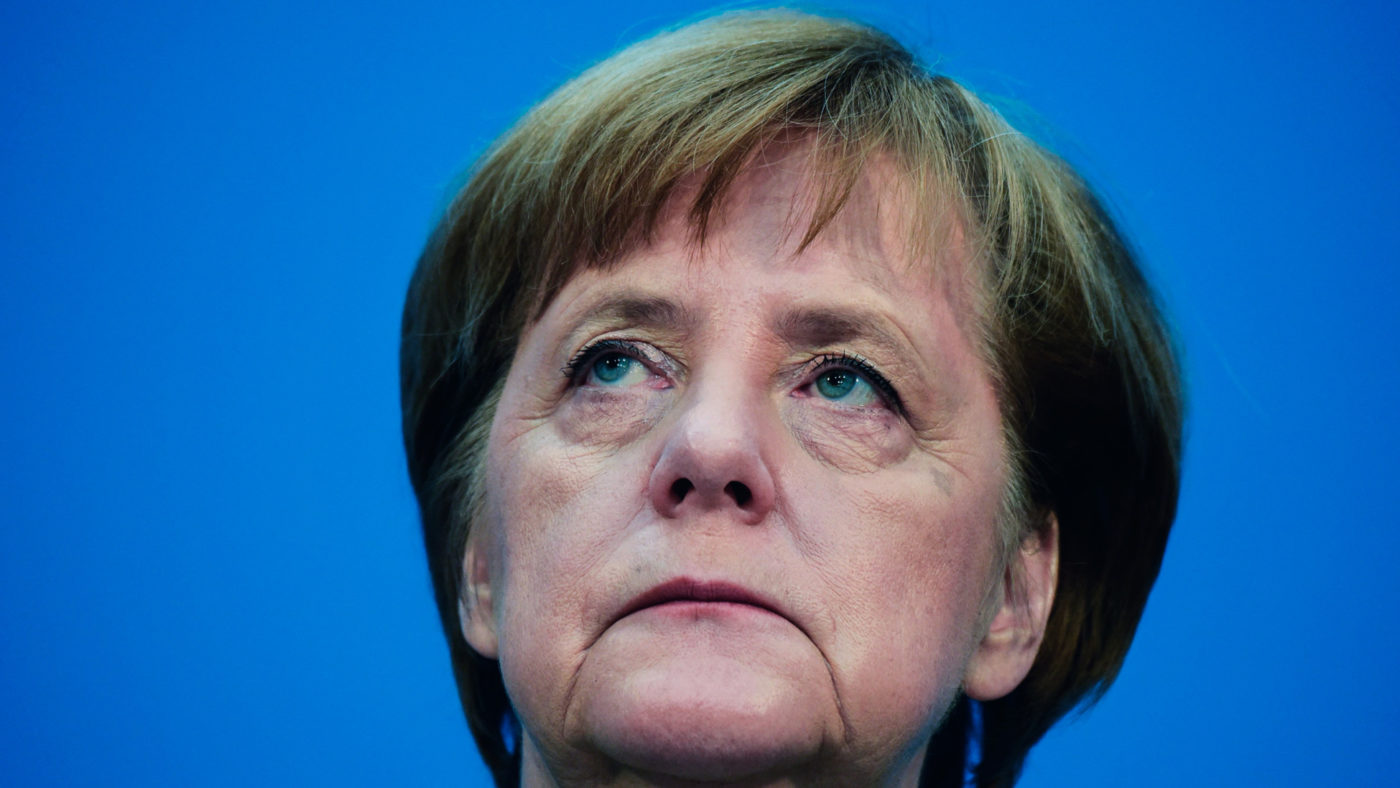Angela Merkel has a new plan to bring the rebellious Central European states to heel. According to the press reports, the German government will seek to divert future structural and cohesion funds away from the poorer European Union members and toward those EU states that host large numbers of non-European migrants. Economically, reduction of the funds that flow from rich EU countries to ex-communist nations is a good idea. The evidence of the EU funds stimulating growth is scarce. The evidence of them stimulating corruption in the recipient countries is abundant. Politically, however, the measure is likely to produce Central European backlash – adding yet another to the long list of Merkel’s failures.
Merkel has been the recipient of effusive praise throughout much of her tenure as German Chancellor. The following quote from The Independent is typical. “When Barack Obama revealed that his last phone call as President was to Angela Merkel, reaffirming their alliance and friendship of the last eight years, he wasn’t just saying goodbye. He was handing over his baton. The German Chancellor isn’t just the leader of Europe, she is now the de-facto leader of the free world,” the British newspaper averred after Donald Trump’s election as U.S. President. Merkel’s reputation, like that of Barrack Obama, is a testament to the power of words over deeds. Merkel has a penchant for saying all the right things, while making very little positive difference.
She came to power in 2005, when she replaced Gerhard Schröder – the socialist Chancellor who implemented wide-ranging labour reforms that were unpopular with his electoral base, but which set the stage for Germany’s remarkable economic recovery. Merkel’s survival in office, therefore, has more to do with the hard work of her predecessor than with her own efforts. Speaking of her own efforts, consider her handling of the three European crises that have defined her Premiership so far. First was the euro crisis, which Merkel along with her Finance Minister, Wolfgang Schäuble, handled with characteristic rigidity. By insisting on the indivisibility of the eurozone – a number one priority for all committed federalists – Merkel helped to generate years of economic contraction and lots of bad blood in the Hellenic Republic.
She proved to be similarly inflexible when the British Prime Minister David Cameron asked for minor concessions from the EU prior to the Brexit referendum. Cameron’s wish list included a four-year freeze on in-work benefits for EU citizens working in Britain, the end of payments of child benefits to children who lived outside Britain, but whose parents worked in the United Kingdom, protection of countries outside the eurozone from regulation made by the eurozone members, and a declaration that the goal of “ever closer union among the peoples of Europe” did not apply to the UK. Cameron got next to nothing and Merkel, who was among the most uncompromising of EU leaders, deserves part of the “blame” (or credit) for the outcome of the Brexit referendum.
Finally, Merkel insisted on maintaining her open-door policy vis-à-vis non-European migrants who poured into Europe in 2015 – long after it became obvious that her welcoming attitude was intensifying the flow of migrants and wreaking havoc in Central Europe. In addition to putting the entire Schengen Area at risk, Merkel set the stage for a show-down with the new EU members over the question of migrant resettlement. Spooked by the unexpectedly large number of migrants and growing domestic opposition, the Chancellor asked ex-communist countries to share Germany’s burden of housing and processing the newcomers. Evidence shows that Central Europeans are more xenophobic than their Western counterparts. But that is only one of the reasons why the governments in that region refused to help Germany. They saw the failure of assimilation of non-European immigrants in Western Europe and did not wish to repeat the same mistake in the East.
Merkel’s new strategy to force Central Europe into compliance with German wishes is to reduce the disbursement of the EU’s structural and cohesion funds from the West to the East once the new multiannual financial framework (aka, the EU budget) starts in 2021. To be sure, the funds are a legendary boondoggle of financial misallocation and corruption. It puts politicians, rather than the market, in charge of making investment choices – which the politicians in the recipient countries often do not on the basis of genuine need, but on the basis of financial kickbacks. Moreover, the role of the structural and cohesion funds in stimulating economic development is, at best, questionable. If rich countries’ aid to poor countries worked, Greece would be Europe’s economic powerhouse.
That said, Merkel should be aware of the political backlash that her move is likely to produce in ex-communist countries. The Central Europeans were promised structural and cohesion funds in return for adopting the Western European regulatory framework – as required by the EU’s accession process. The funds, in other words, were meant to soften the blow to Central European competitiveness arising from the region’s adoption of the acquis communautaire. To deprive them of the promised funds on the basis of unrelated political considerations will be seen as breaking an agreement between the East and the West. Merkel’s move will play well in Germany and will be welcome by other net contributors to the EU budget in the post-Brexit era, but it will also deepen intra-European divisions. As such, it will likely add to Merkel’s already impressive list of failures.


